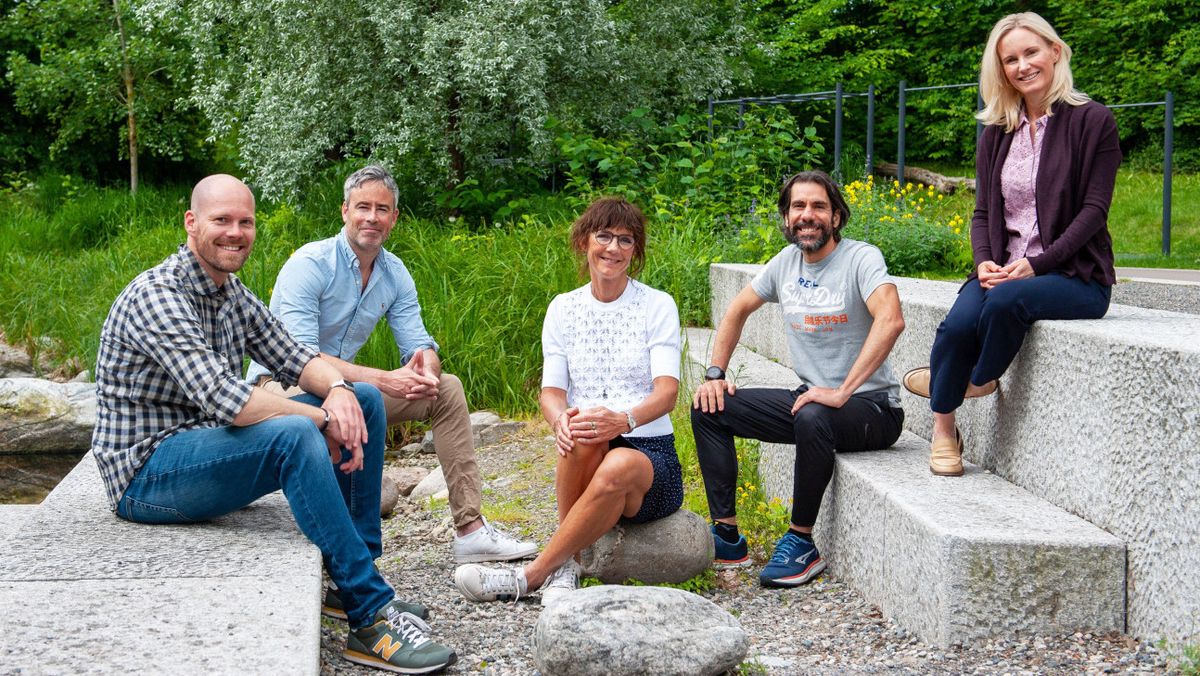Bladder pressure measurements in particular are used to make the correct diagnosis of enlarged prostate and urinary incontinence, which affect hundreds of millions of people worldwide today.
Norwegian health startup Invivo Bionics has received 95 million NOK through the EIC Accelerator scheme in the European Union’s Horizon Europe programme. 25 million pure grants, while 70 million can come as investments from the EU network of health technology investors. The money will be used to develop the precise Invivo probe to measure pressure in the bladder.
The probe, which uses micro- and nanotechnology, is about one millimeter in diameter. It is inserted directly into the bladder through the skin, is fixed with a bandage on the outside of the body and can measure pressure without the patient noticing.
It can provide completely new insights
It is a completely different system from the method used today, in which rubber tubes are inserted through the urethra and rectum. It then fills the bladder with water and measures the pressure through the tubes when the bladder is emptied and artificially filled.

With today’s method, bladder pressure can be measured over a period of only 15 minutes. The tiny probe can continuously measure pressure over several days and collect large amounts of data.
Continuous measurements provide insight into bladder behavior in a whole new way. And since the bladder is a body about which little is known today, we believe the large amounts of data our sensor will collect can also be used in future research, says Ingelin Clausen, who started Invivo Bionics in 2019 and is CEO and CTO. In the company.
IoT security is key
Each sensor can generate more than four million data points each day, says Australian Daniel Aragao, solutions engineer at Invivo Bionics.
– It’s not entirely Google-wide, Aragao says, but there’s still quite a bit of data to process.
He believes that building a robust IoT pipeline is critical to the software portion of this project.
One of the biggest challenges of the Internet of Things is dealing with security certificates and PKI (Public Key Infrastructure – the cryptographic-based framework for using digital certificates across computer networks) in the production of sensors. We must make sure that cryptographic security keys are “copied” across all devices, so that they seamlessly connect to our services at startup without the patient having to do any kind of configuration first, says Aragao.
He says security solutions are important to prevent clones or malicious actors pretending to be an Invivo device from connecting to their services and compromising patient data. Security certificates also ensure that all communications with the sensors and all data collected by the sensors are encrypted.
IT team will be expanded
The actual performance challenge is to ensure that data from the sensors is sent over any 4G network on the planet, through so-called MQTT intermediaries. It explains that data must be stored, validated and analyzed before it is returned and can be read in real time.
He adds that the software’s ability to control the sensor’s built-in battery is also important in this project.
So far, Aragao is solely developing Invivo Bionics software, but the company plans to expand its IT team with more developers and data analysts by the end of the year.
The goal of building the Aragao team is to master a trustless IoT solution with minimal delay, enabling patients to live a normal life while the sensor does its job inside their bladder.
IT developers aren’t the only thing Invivo Bionics will recruit. Ingelin Clausen says they already have a job posting for a Senior Electronics Engineer, a hardware related position associated with the electronics of the sensor. They are also working to strengthen the team with someone responsible for the organization and business developer.
We will look at other bodies
With the new sensor, bladder pressure measurements will be much more accurate than the current method. The sensor can measure pressure differences down to millibars. This is the pressure difference a diver experiences when he rises or falls one centimeter in the water.
The technology behind the sensor is based on several decades of pressure sensor development at Sintef. Ingelin Clausen led the work there for over ten years adapting this technology for use within the body’s organs, before Invivo Bionics began.
In medicine, manometry can be used on organs more than the bladder. Clausen, for example, has a Ph.D. in measuring pressure in the brain, and says that at Invivo they have also studied how the technology can be used in the body in general.
The unique thing about the pressure sensor is that it is extremely small and extremely accurate. So, there are many ways we can go from here, and how we will develop our sensor for use in other bodies as well, is part of the strategic decisions we will make in the future. I have spoken to many doctors over the years. And almost every time I talked to a new doctor, he had a new desire for what we should develop, says Clausen.
Hoping for sales in 2025
Invivo Bionics has reached so far that it will freeze the design and obtain the necessary CE approvals and markings to be able to market and sell the pressure sensor as medical equipment in Europe. It includes a lot of testing to show that the product works as promised and is safe to use.
The company has also joined a network of urologists in Europe and the USA, who provide feedback and will eventually test the final product.
We have a close dialogue with those who will be using the sensor and know what they want with the new solution, says Clausen.
Invivo Bionics aims to obtain all necessary approvals during 2024, so that they can start signing sales agreements in 2025.

“Web specialist. Lifelong zombie maven. Coffee ninja. Hipster-friendly analyst.”



